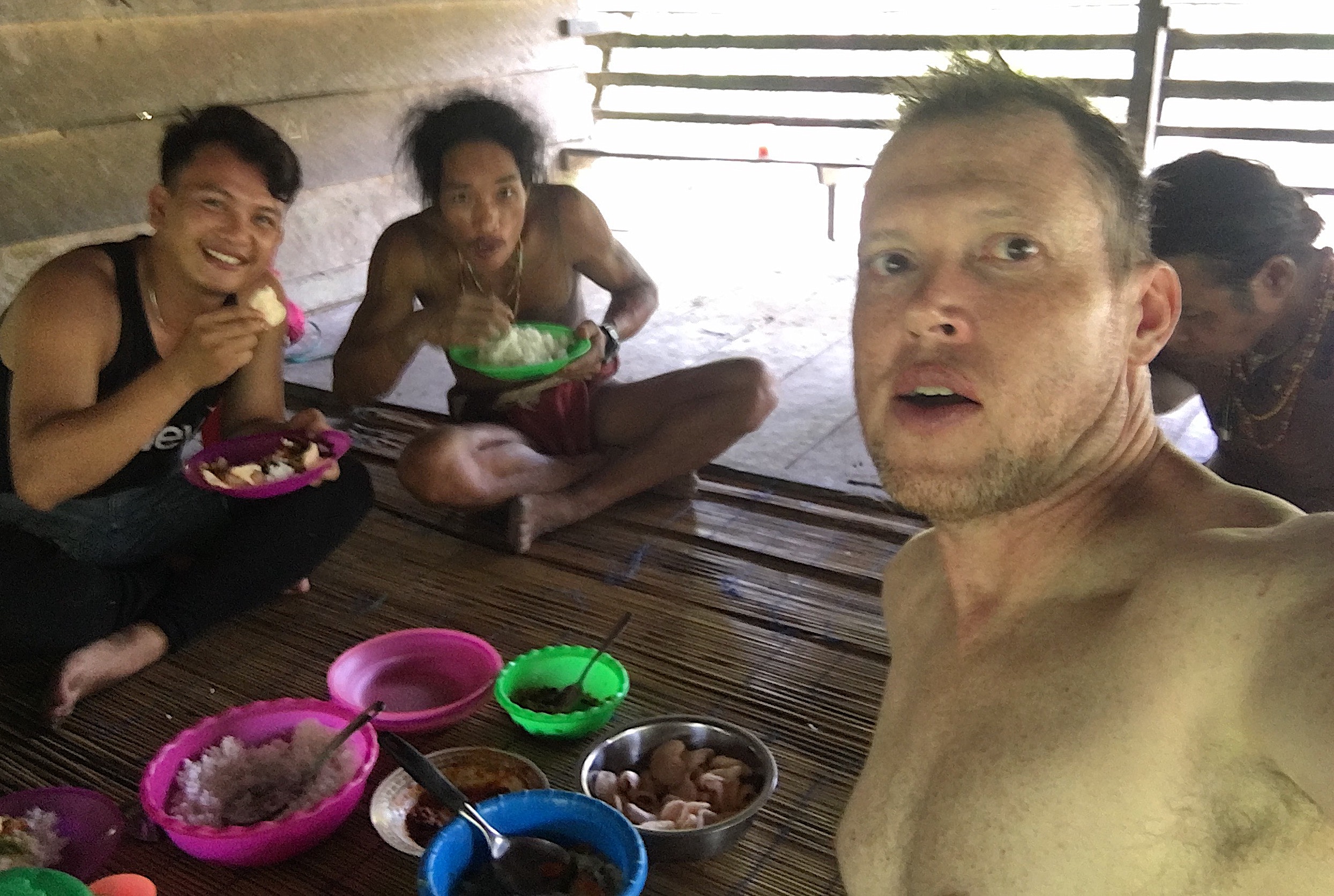The social atmosphere on Siberut Island was very much geared toward evening gatherings. It took me a while get used to it, since even before the web-wired “information age” I grew up surrounded by popular culture like TV – and Amantiru’s place didn’t even have a radio. Indeed, the songs Amantiru and his friends sang in the jungle weren’t “received” in some abstract sense; they were passed along, from person to person, group to group – not as “media,” but through personal relationships.
When I was growing up I recall how my mother, who grew up on a Kansas farm, referred to evening conversation between friends or family as “visiting.” As in, “my uncle’s family dropped in, and we visited for a few hours.” Growing up, I assumed that “visiting” was a simple synonym for “conversation,” but it wasn’t until my time in the jungle that I was reminded that a given evening conversation would not have been possible without a literal “visit.” Which is, before telephones and mass media, a physical visit from a neighbor or family member was a major event.
When a given conversation is sparked by the physical appearance of guests, the conversation that results tends to be fairly concrete and localized. Less time is spent on political abstractions or theoretical scenarios than on the practical exchange of stories and information about the here and now. At one point during an evening event at Amaniru’s place the conversation took a serious turn toward “sainu.” I didn’t speak Mentawai, so I couldn’t follow the topic of the conversation, but the word did sound familiar. After half an hour of listening in on a conversation about “sainu,” I realized, with a faint sense of amusement, that the word means “pigs.” Indeed, in house where Amatiru’s pigs literally live under the house (and make up a big part of his wealth), it makes sense that they would be central to the conversation.
We also talked a fair amount about hunting, since one of the foods we ate during dinner was a tender, greasy, gamey filet of squirrel, which Amantiru had found and shot with his air rifle that morning. The squirrel didn’t even constitute that much of the meal (which included ramen noodles that Agus had hiked in for me to eat), but it was certainly the most interesting ingredient – from the drama of hunting it that morning, to the fact it had been stored in a ceiling-mounted bucket so that the cats wouldn’t eat it before we could.
Note: “Dispatches” are short vignettes, profiles, and mini-essays written and posted from the road, often in tandem with my Instagram account. For more full-formed writing, check out my book Marco Polo Didn’t Go There, or the Essays or Stories archives on this site. I don’t host a “comments” section, but I’m happy to hear your thoughts via my Contact page.

